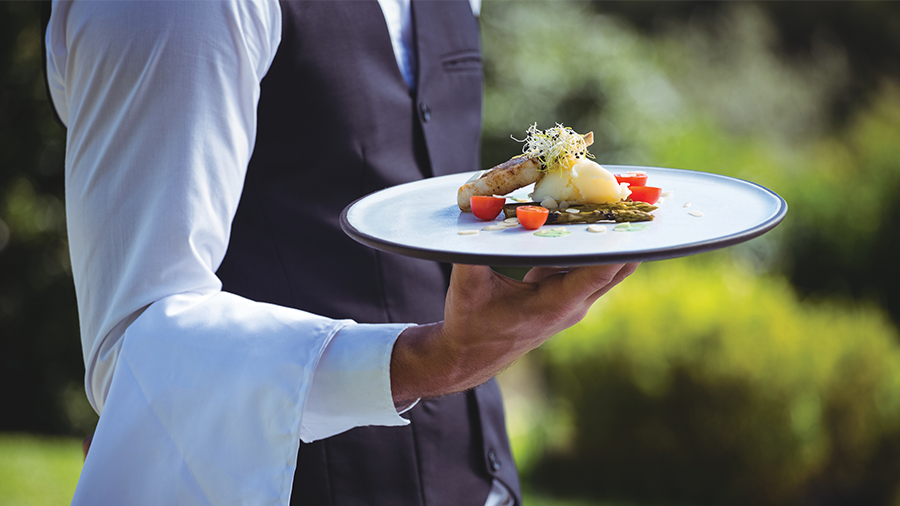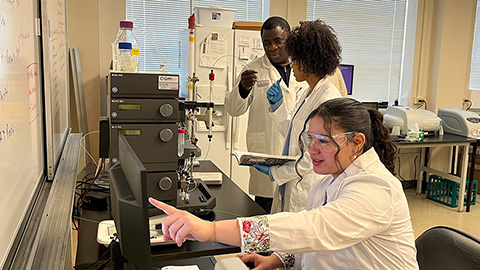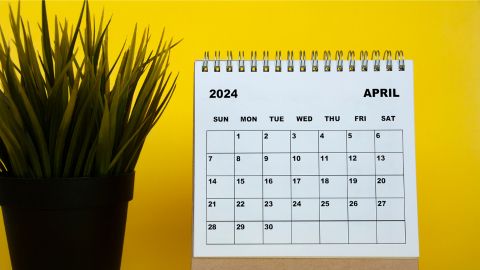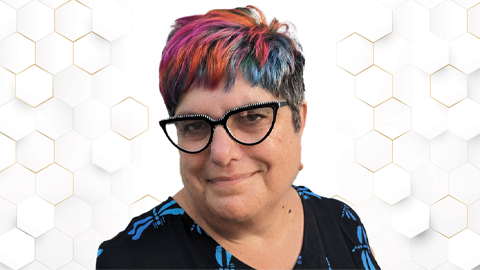Want to serve up a killer research seminar? Here's how
The introductory remarks are over, and the lights have dimmed. You settle into your chair with cookie and coffee in hand, waiting to be wowed by today’s seminar speaker. Less than 10 minutes into the hour, you realize this speaker is going to be a disappointment. The talk is incoherent, you’re suffocating under an avalanche of data and a hypothesis is nowhere to be found. As if that’s not bad enough, you accidentally took an oatmeal-raisin cookie instead of chocolate chip.

There’s only one thing worse than sitting through a mind-numbing seminar, and that’s delivering a mind-numbing seminar. To avoid this fate, I’ve developed a formula for science communication that should help you dazzle the audience every time. This formula is not only useful for research seminars but also works for other forms of science communication, including grants, papers, blog posts and popular science articles.
The trick is to be a good server.
When I go out to enjoy a meal, the quality of the experience is not limited to the cuisine. Whether it will be a night to remember or one I can’t wait to forget is largely influenced by my waiter or waitress. From the moment you open a blank PowerPoint file to the moment you step down from the podium, that is the role you should assume. Your science is the entrée, and it is your job to serve it up so the audience will walk away satisfied.
The appetizer
The best meals are prefaced by a starter plate that pairs well with the main dish. Ideally, the appetizer should be tasty but small, leaving the patron salivating for more. The best appetizer in a research talk presents an unsolved problem. Everyone loves a good mystery, so this is a delectable way to pose your research question. Some examples: How does protein X contribute to the development of disease? How does cellular stress increase expression of gene X? How does compound X kill cancer cells? How do parasites modify their host’s behavior? The data you present during the main course will later be savored as clues in your detective story.
Keep in mind that we scientists study small but important pieces of larger puzzles. When setting up your seminar, it is imperative to orient the audience to your specific puzzle piece, not so much the larger puzzle. For example, everyone knows how nasty cancer is, but we are less likely to know the details concerning the gene or pathway you decided to study. If you fail to educate the audience about your system at the get-go, you will lose them to daydreams. Virtually any research question will captivate an audience if you frame it as a mystery.
Like a good server who patiently describes unfamiliar items on the menu, be sure to define jargon early. It is preferable to leave alphabet soup off your menu, but if you must use some biotech babble, it is your job to explain it carefully and clearly.
Take care not to fill a patron’s stomach to capacity before you get to the main course; keep the appetizer light. A common mistake is to present overwhelming extraneous details right out of the gate. Stop and think: Does the audience really need to know this to understand my specific research question? If not, leave it out. What you must include are details relevant to the formulation of your hypothesis. If you set the stage properly, your audience should be able to guess your hypothesis before you state it.
Take no more than 10 minutes to complete the appetizer.
The main course
In the finest restaurants, the entrée is simple and elegant, not an all-you-can-eat jumble of 30 different foods thoughtlessly piled on top of one another. The latter, called a “data dump,” is another common mistake in research seminars. You want to avoid stuffing your audience with a buffet of data. Present only the cream of the crop, not every single experiment you’ve done in the last few years. There is no need to show results that have little to do with the specific research question your seminar is addressing. By cutting out the fat, you’ll have sufficient time to walk people through each experiment so they understand the assay well enough to interpret the data on their own.
Remember that people want to feel satisfied after a meal. No one enjoys the indigestion that results from eating too much too fast. Instead of trying to cram too much down your audience’s gullet, focus on select pieces of evidence in greater detail. Describe how these results shed light on the mystery (or how they complicate it). Rather than feeling the need for a cognitive antacid, your audience should walk away from your talk with a sense of satisfaction, a sense that they learned something.
Some people like to incorporate humor into their research seminar to spice things up a bit. No problem. However, treat humor like dinner wine. In moderation, it can enhance the meal’s flavors, but too much dampens the taste buds. A few laughs can season a talk to perfection, but excessive humor becomes distracting. Similarly, small doses of humor can loosen up the audience, but too much and you’ll look like a goof.
Take about 25 minutes to complete the main course.
Dessert
It’s the moment we’ve all been waiting for. Time to solve the mystery you presented at the outset. If you have an experimental finding that unequivocally addresses the hypothesis, now is the time to show it. If you don’t, it is time to review the evidence you’ve amassed so far. Either way, by discussing your results in the context of the appetizing research question, you will give your seminar a memorable finish.
The best way to conclude your seminar is to restate the mystery (your research question), summarize the clues (your experimental findings), and construct a model that solves the mystery (or at least gets you closer to an answer).
Take no more than 10 minutes to complete the dessert — it should be short and sweet.
Service with a smile
Frustratingly, many seminars drag on beyond the allotted period and leave little time for questions. You don’t want to deprive your colleagues of the chance to ask questions, and you don’t want to miss hearing what they think. Limiting yourself to a 45-minute talk leaves ample time for questions.
As with a good server, professionalism and courtesy continue to be of utmost importance. Do not interrupt the audience member by rushing to answer. Taking a moment to repeat the question is helpful for two reasons: one, it ensures that you’ve correctly captured what is being asked, and two, it helps others in the audience who could not hear the question. As you address the question, it is critical to be polite and unassuming; never be condescending and arrogant.
Finally, never slam the reviewer comments of your grants or papers during your talk; those folks might be in the audience.
If you follow these simple tips and serve up your research question like a good meal, you can bet people will request you the next time they have a hankering for science. They may even tip you with an honorarium.
Enjoy reading ASBMB Today?
Become a member to receive the print edition monthly and the digital edition weekly.
Learn moreFeatured jobs
from the ASBMB career center
Get the latest from ASBMB Today
Enter your email address, and we’ll send you a weekly email with recent articles, interviews and more.
Latest in Careers
Careers highlights or most popular articles

Calendar of events, awards and opportunities
Apply for our Advocacy Training Program by April 19. Plus, submit your entry for molecule of the year!

So, you went to a conference. Now what?
Once you return to normal lab life, how can you make use of everything you learned?

Touching the future from the bench
Scholar, scientist, teacher and mentor Odutayo Odunuga discusses the important roles of the institutional PI, his journey and his research.

Calendar of events, awards and opportunities
Apply for our IMAGE grant writing workshop by April 15 and our Advocacy Training Program by April 19. Plus, submit an abstract for our transcription meeting in September!

A look into medical writing
Our careers columnist spoke with Ashlea A. Morgan at Chameleon Communications International to get a sense of one type of work a medical writer can do.

Embracing serendipity
NIGMS Deputy Director Dorit Zuk describes her scientific journey and offers tips on making career changes.

